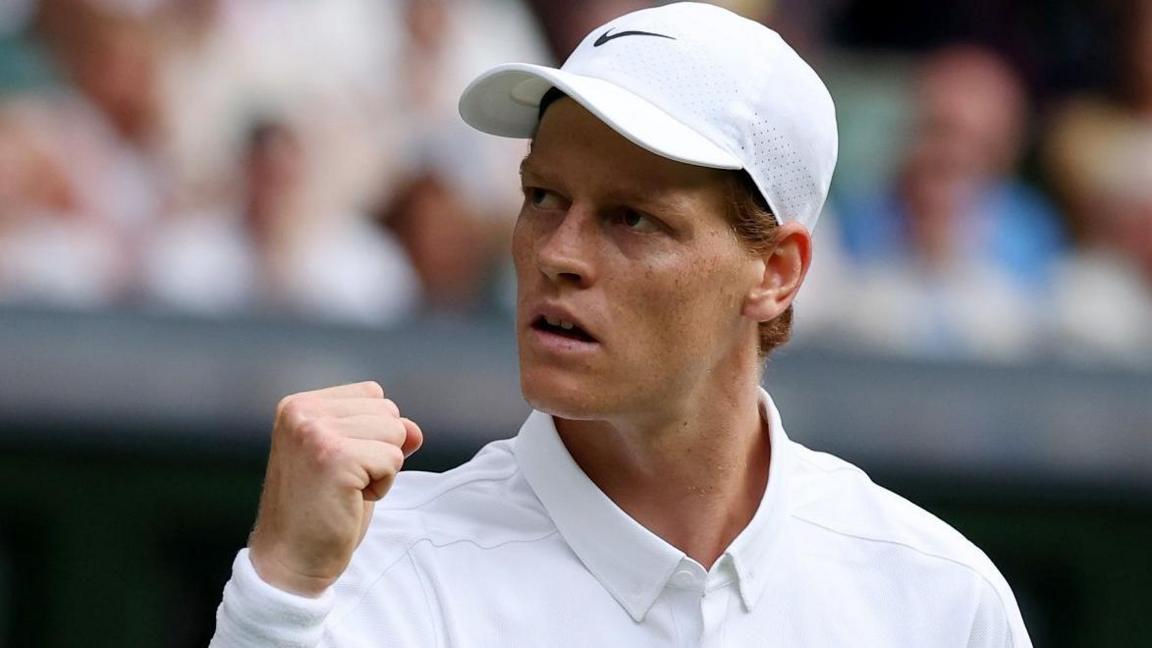Sinner’s Ground Game: Analyzing the italian’s Power and Precision
Jannik Sinner has rapidly established himself as a formidable contender on the ATP circuit,and his ground game stands out as one of his most lethal weapons. With an impressive blend of raw power and surgical precision, the Italian has the ability to dictate rallies and put his opponents on the back foot. His strokes are characterized by a crisp, clean execution, allowing him to maintain a tactical edge during high-stakes exchanges. key elements of Sinner’s ground game include:
- Forehand Power: Sinner’s forehand is a cannon, generating both pace and spin that challenges even the best defenders.
- Topspin Control: His ability to hit deep with topspin not only pushes opponents back but also opens up the court for his next shot.
- Consistency: Unlike many players known for their power, Sinner couples his strength with remarkable reliability, minimizing unforced errors.
Another aspect of Sinner’s game is his tactical awareness on clay, which he has transformed into a key component of his success. His court coverage and foot speed allow him to shift his weight effortlessly, enabling him to execute powerful drives while also being able to recover quickly for defensive shots. Watching Sinner, one notices his keen sense of timing, which enhances his ability to exploit the weaknesses of his adversaries. The nuances of his play style are frequently highlighted by his:
- Slice Backhand: A strategic choice that can disrupt rhythm and create openings for aggressive follow-ups.
- Drop Shots: A tactical variation that catches opponents off guard, showcasing his creative shot-making ability.
- Adaptability: Sinner’s capability to adjust his game plan according to the opponent’s style is indicative of his growing maturity as a player.

Alcaraz’s Resilience: How the spaniard Overcomes Adversity on the Court
In the high-stakes realm of tennis, resilience is often the linchpin that separates champions from contenders. Carlos Alcaraz, the young Spanish sensation, exemplifies this quality on the court. Whether facing blistering opponents, overcoming injuries, or handling the immense pressure of important matches, his ability to rebound is extraordinary. Alcaraz’s journey has been punctuated by moments of adversity,each met with a relentless determination that has increasingly become his trademark. His capacity to maintain focus during critical points allows him to shake off setbacks and reestablish control in matches that seem lost.
Key elements of Alcaraz’s resilience include:
- A strong Mental Game: Alcaraz demonstrates an unwavering focus, which is pivotal during challenging moments in matches.
- Adaptability: The Spaniard adjusts his strategy mid-match, showcasing his intelligence and understanding of the game.
- Emotional Stability: By managing his emotions effectively, he can channel pressure into motivation rather than despair.
- Support System: The influence of his coaching team and family plays a crucial role in his ability to navigate tough circumstances.
These factors not only bolster his performance but also inspire those watching; they illustrate that resilience is a fundamental trait for any athlete aiming for glory on such a grand stage as Wimbledon.
Mental Fortitude: The Psychological Battle Between two Young Titans
As Jannik Sinner and Carlos Alcaraz gear up for their impending Wimbledon clash, the spotlight shifts from their on-court prowess to the psychological dimensions of their rivalry. Both young athletes, considered titans of the next generation, embody not just raw talent but also remarkable mental resilience. The pressure of expectations looms large, and each must navigate the burden of being touted as the future of tennis.their past encounters, characterized by a blend of fierce competitiveness and mutual respect, lay the groundwork for what promises to be a gripping duel.As mental fortitude becomes a crucial factor, the ability to maintain focus in the face of adversity will undoubtedly play a important role in determining their fate on the hallowed grass of Wimbledon.
In this high-stakes matchup, several psychological elements come into play:
- Pressure Management: Both players have shown an ability to cope with stress, but as they step onto the grand stage, their true mettle will be tested.
- Mind Games: A keen awareness of each other’s playing styles and tendencies adds layers of strategy, turning this encounter not just into a physical contest but a mental chess game.
- Confidence vs. Doubt: The winner will likely be the one who can quell any hint of self-doubt and harness belief in their game plan.
The embodiment of these factors may very well tip the scales in favor of either athlete, making it imperative that both are mentally prepared to endure a battle that extends far beyond the scoreline.

Final Predictions: Expert Insights on Who Will Claim the Wimbledon Crown
The upcoming showdown between Jannik Sinner and Carlos Alcaraz is poised to be a thrilling finale at Wimbledon, with both players demonstrating extraordinary skill and resilience throughout the tournament.Experts suggest that Sinner’s powerful baseline game and deft shot-making will be crucial in challenging Alcaraz’s agility and tactical prowess. Some key factors that could influence the match include:
- Serve Efficiency: Sinner’s ability to dominate with his serve could provide him a significant advantage on the grass, notably in crucial moments.
- Mental Fortitude: Alcaraz’s experience in high-pressure situations, having encountered match points and come through unscathed in prior rounds, may give him the psychological edge.
- Baseline Battle: The winner will likely be steadfast by who can assert their control during rallies, as both players excel in extracting errors from their opponents.
Analysts also point to the physical condition of both athletes as a decisive element in the final.Sinner’s resilience after lengthy encounters earlier in the tournament may be tested against Alcaraz’s relentless energy and speed on the court. Observers are keenly anticipating:
- Endurance Levels: how each player manages fatigue might ultimately dictate their performance in the later sets.
- Game Strategy: The tactical adjustments each player makes in response to their opponent’s strengths and weaknesses could prove pivotal.
- Emotional Control: Keeping composure amidst the grandeur of Wimbledon will be vital, especially as the stakes rise.

